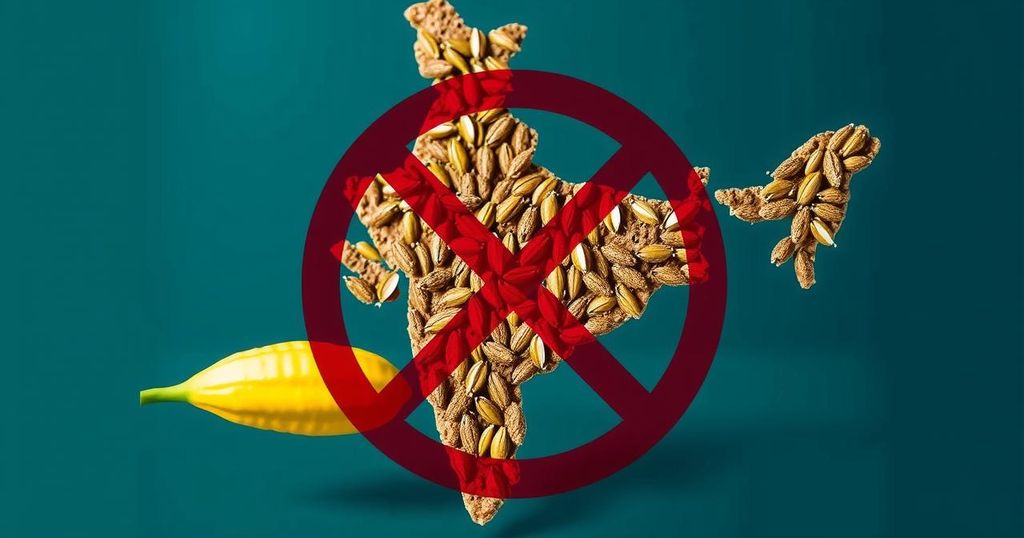Politics
ASIA, BANGALORE, BANGLADESH, CHINA, DGF, EUROPE/ASIA, FIRA, FOOD AUTHORITY, FOOD INDUSTRY, FOOD SAFETY, FOOD SAFETY STANDARD AUTHORITY OF INDIA, INDIA, JAPAN, KOLKATA, MARKET ACCESS, MEXICO, NEW DELHI, NORTH AMERICA, NUTRITION, PUBLIC HEALTH, SRI LANKA, SUPPLY CHAIN, TODAY NEWS, TURKEY, TUTICORIN
Clara Montgomery
India Rebuffs Food Shipments from Several Countries Due to Safety Standards
India has rejected food consignments from China, Japan, Sri Lanka, Bangladesh, and Turkey this year over safety and quality issues, as reported by the Food Safety Standard Authority of India (FSSAI). The newly initiated Food Import Rejection Alert (FIRA) portal facilitates international communication on food safety risks. Key rejections include arecanut and tea bags from Sri Lanka and Japan due to defects and unlisted ingredients. Overall, these actions underscore India’s rigorous import regulations to protect consumer health.
In 2023, India has rejected multiple food consignments from various countries due to safety and quality concerns, including apples, nuts, alcoholic beverages, and sushi. The Food Safety Standard Authority of India (FSSAI) published this information via the Food Import Rejection Alert (FIRA) portal, which facilitates global communication among food authorities about food safety and health risks. Significant rejections included products from Sri Lanka, Bangladesh, Japan, China, and Turkey, highlighting stringent import regulations that mandate thorough verification processes including document scrutiny and testing.
Recent rejections include Sri Lankan arecanut and cinnamon flower bud due to visible defects and non-compliance with safety standards. Furthermore, tea bags from Japan were disallowed because of an unlisted botanical ingredient, while fresh red apples from Turkey failed due to their short shelf life. The FSSAI enforces these regulations to protect public health and ensure the quality of food imports, which come from over 100 countries.
The Food Safety and Standards (Import) Regulations, 2017, serve as a framework for managing imported food items in India. The FSSAI identifies and addresses potential health risks associated with food imports, using a three-tier verification process: document review, visual inspection, and laboratory testing. This rigorous approach aims to uphold high standards for food safety, encompassing various parameters such as pesticide levels, heavy metal content, moisture, and fat ratios. The establishment of the FIRA portal further enhances transparency and enables immediate action to prevent health hazards derived from unsafe food imports.
In summary, India’s rejection of food imports is a critical measure to safeguard public health by enforcing strict safety regulations and maintaining food quality standards. The country closely monitors food consignments from various nations, ensuring they comply with local standards to prevent any potential health risks. By doing so, India reinforces its commitment to protecting consumers while strengthening the integrity of its food supply chain.
Original Source: www.livemint.com








Post Comment